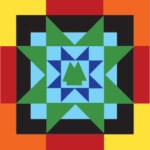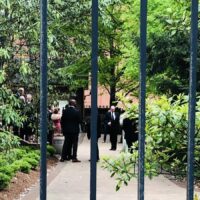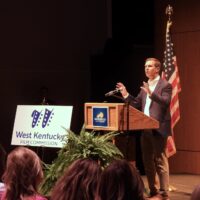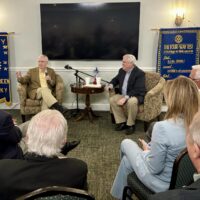National News Literacy Week kicks off today, an initiative that the News Literacy Project and E.W. Scripps Co. designed to raise awareness of the importance of news literacy for students and the general public. It differs from Media Literacy Week in October.
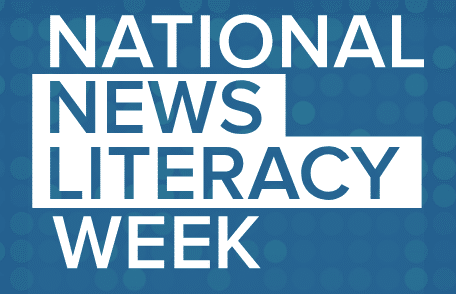
According to the News Literacy Week website, half of the public is only slightly familiar with the term “op-ed” or doesn’t know what it means, 63% of people worldwide agree that the average person can’t tell good journalism from rumors or falsehoods, and 96% of high school students surveyed didn’t consider why ties between a climate-change website and the fossil-fuel industry might bring the site’s credibility into question.
At a time where it’s harder than ever to differentiate real news from fake online information, and there are predictions of even greater disinformation than in 2016, journalists, nonprofit organizations and governments are increasingly trying to make news literacy a priority. The BBC, for instance, just announced a project with actress Angelina Jolie aimed at helping teenagers spot fake news.
As part of National News Literacy Week, local Scripps TV stations are collaborating with schools on student-produced news reports, and Scripps sites like Newsy and Stitcher are running stories and a national advertising campaign on the need for news literacy and the role of a free press in a democracy.
Also, the News Literacy Project is releasing free daily media literacy lessons for students in grades six through 12 from its Checkology virtual classroom.
Completing each lesson unlocks the next. Here’s the daily schedule of themes and their related Checkology lessons:
- Monday, Jan. 27: Navigating the information landscape (“InfoZones”).
- Tuesday, Jan. 28: Identifying standards-based journalism (“Practicing Quality Journalism”).
- Wednesday, Jan. 29: Understanding bias — your own and others’ (“Understanding Bias”).
- Thursday, Jan. 30: Celebrating the role of a free press (“Democracy’s Watchdog”).
- Friday, Jan. 31: Recognizing misinformation (“Misinformation”).
To follow the conversation on social media, search for the hashtag #NewsLiteracyWeek.
The Rural Blog is a publication of the Institute for Rural Journalism and Community Issues based at the University of Kentucky.
